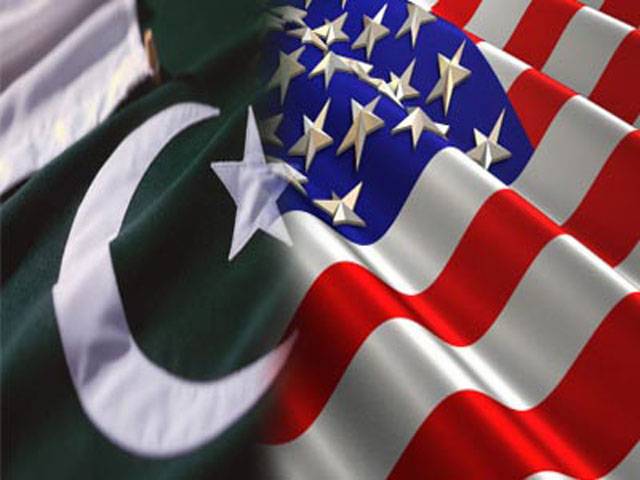ISLAMABAD - Pakistan and the United States will try to sort out differences over the key issues relating to their future cooperation when top diplomats of the two countries meet in Washington today.
Adviser on Foreign Affairs Sartaj Aziz will lead Pakistani delegation at the sixth round of ministerial level Pakistan-US strategic dialogue while Secretary of State John Kerry will lead the US side.
According to the Foreign Office, this is the third annual meeting since the present government came into power and Prime Minister Nawaz Sharif’s visit to the United States in October last had given necessary impetus to the dialogue mechanism.
Senior diplomats said Pakistan will try to persuade the United States to take major future-making initiatives to enhance bilateral cooperation in areas both sides have been discussing over last three years.
Among these areas both sides are trying to enhance bilateral cooperation are economy and finance; energy; education, science and technology; law enforcement and counterterrorism; security, strategic stability and non-proliferation and defence.
Analysts and experts are looking at the sixth round as most crucial as it calls for major decisions now Pakistan and the United States have to take about the future of their bilateral relationship.
They believe that both sides still have differences over the key strategic issues including security, strategic stability and non-proliferation and defence and hope both sides will resolve sticking points to set a roadmap for their bilateral relations.
Pakistan with a robust command and control system of its nuclear assets is seeking to join the Nuclear Supplier Group (NSG) and wants to secure support of the United States for a criteria-based civil nuclear deal to drive maximum benefits for its population in the energy and other sectors in the civil domain. Pakistan has been warning the international community about the dangers of the Indian build-up which it insists would eventually disturb the strategic balance in South Asia.
Prime Minister Nawaz Sharif, scheduled to participate in the fourth and last Nuclear Security Summit being hosted by the United States in Washington next month, is also expected to raise these crucial issues.
Zahir Kazmi, a director at the Strategic Plans Division, said the NSS commitments should remain political and voluntary in nature, because nuclear security remained fundamentally a national responsibility.
“There should be no parallel or new initiatives because the IAEA has a central and leading role in taking forward the NSS-related commitments,” he pointed out.
According to Pakistan’s former ambassador to the UN in Geneva, Zamir Akram, Pakistan’s participation in the Nuclear Security Summits (NSS) process has helped neutralise or balance out the efforts that could have specifically targeted the country on the pretext of nuclear security.
“We were particularly successful in emphasising that the process has to be voluntary; should cover only the civilian programme; and that there should be no international mechanism involved in enforcing a nuclear security order. It helped Pakistan highlight its achievements and the measures taken for greater security,” he added.
Dr Zafar Iqbal Cheema, President of the Institute of Strategic Vision, an Islamabad-based think tank said the country’s participation in the summits helped in improving “its image and interaction with the international community”.
Dr Cheema criticised the 2016 Nuclear Security Index issued by the Nuclear Threat Initiative which claims to work for global security by reducing the risk of use and preventing the spread of biological, chemical and N-weapons. He said the ranking was not compatible with Pakistan’s nuclear reality.
“The IAEA has conceded that not an ounce of Pakistan’s fissile material is unaccounted for, yet Pakistan has been placed lower in ranking, which is baseless,” he said.
The ranking ignored the efforts made by the country with regard to its weapons’ security and control measures; compliance with global norms; capacity to keep them safe and their risk environments, he said.
Sunday, May 19, 2024
Sixth round of ministerial level Pakistan-US strategic dialogue today

6:57 PM | May 18, 2024
Sports & Genocide
May 18, 2024
Healing AJK
May 18, 2024
A New World Order
May 18, 2024
Tobacco Toll
May 17, 2024
Rushed Reforms
May 17, 2024
Continuing Narrative of Nakba
May 18, 2024
Teacher Struggles
May 18, 2024
No Filers out of Reach
May 18, 2024
Hoax of Inflation Coming Down
May 17, 2024
Rising Inflation
May 17, 2024
ePaper - Nawaiwaqt
Advertisement
Nawaiwaqt Group | Copyright © 2024





